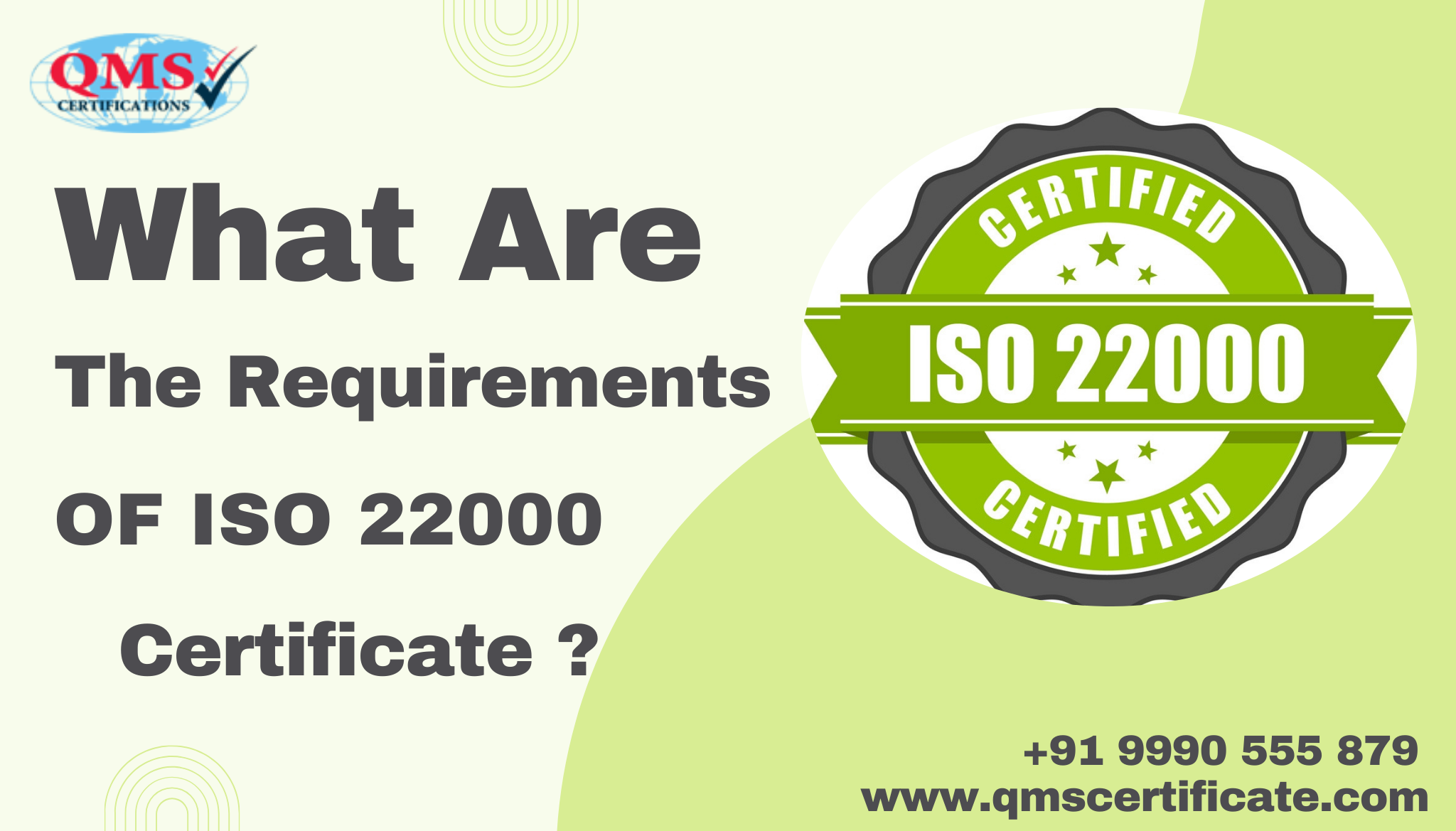What Are The Requirements Of ISO 22000 Certificate ?

1. Context of the Organization
Determine the internal and external factors that may affect the organization’s ability to achieve its food safety objectives. Determine the parties involved and the pertinent needs of each.
2. Leadership
Top management must demonstrate leadership and commitment to the FSMS by establishing a food safety policy, ensuring the integration of food safety objectives into business processes, and ensuring the availability of necessary resources.
3. Planning
Establish food safety objectives and develop plans to achieve them. Conduct a hazard analysis and determine control measures to mitigate identified hazards. Establish operational prerequisite programs (PRPs) and a food safety team.
4. Support
Provide the necessary resources, competence, awareness, communication, and documented information to support the operation and effectiveness of the FSMS.
5. Operation
Implement the planned processes and control measures to ensure the production of safe food products. This includes establishing, implementing, and maintaining procedures for hazard control, operational control, and emergency preparedness and response.
6. Performance Evaluation
Monitor, measure, analyze, and evaluate the FSMS to ensure its effectiveness. Conduct internal audits and management reviews to identify opportunities for improvement.
7. Improvement
Take corrective actions to address nonconformities and prevent recurrence. Implement continual improvement of the FSMS based on the results of audits, reviews, and other relevant information.
Conclusion
In conclusion, the requirements outlined in ISO 22000 provide a structured approach for organizations to establish and maintain an effective food safety management system (FSMS). By adhering to these requirements, businesses can systematically identify, assess, and control food safety hazards, ensuring the production of safe and high-quality food products. From understanding the context of the organization to implementing operational controls and conducting performance evaluations, ISO 22000 offers a comprehensive framework for continuous improvement in food safety practices. Ultimately, certification to ISO 22000 demonstrates a commitment to excellence in food safety and helps organizations build trust with stakeholders, enhance market competitiveness, and contribute to the overall well-being of consumers.